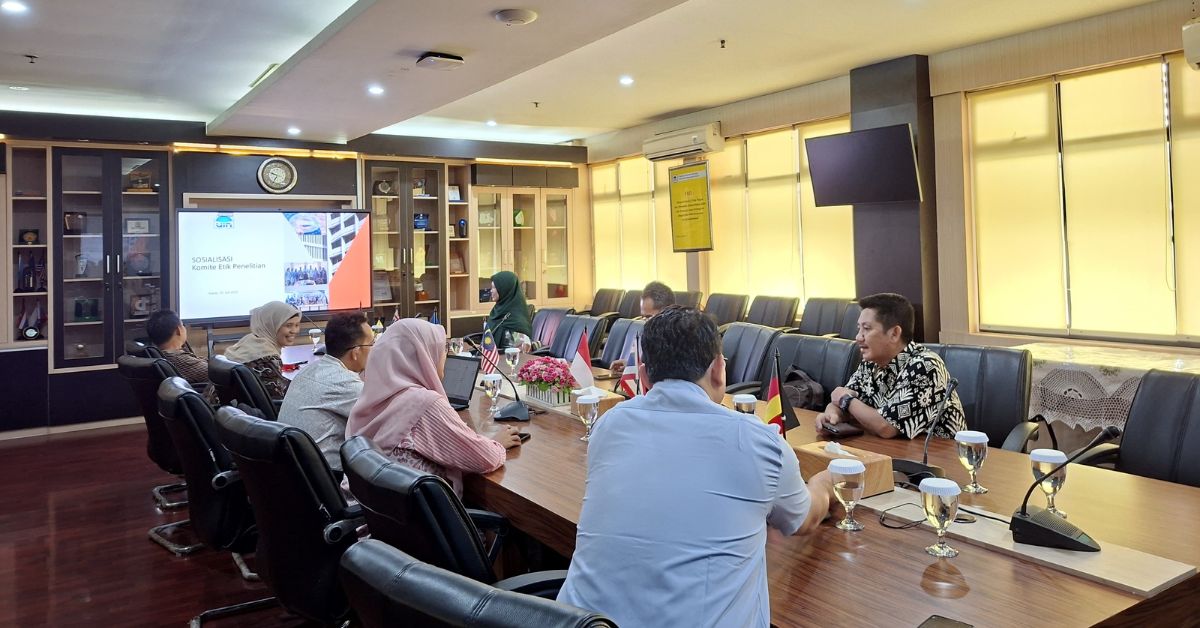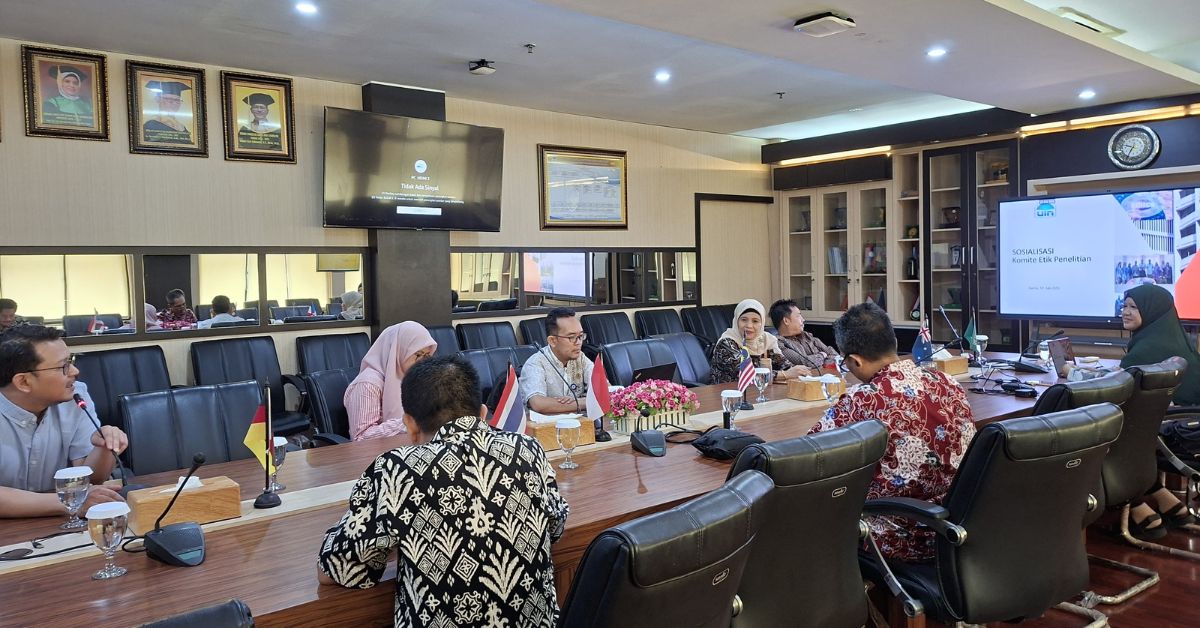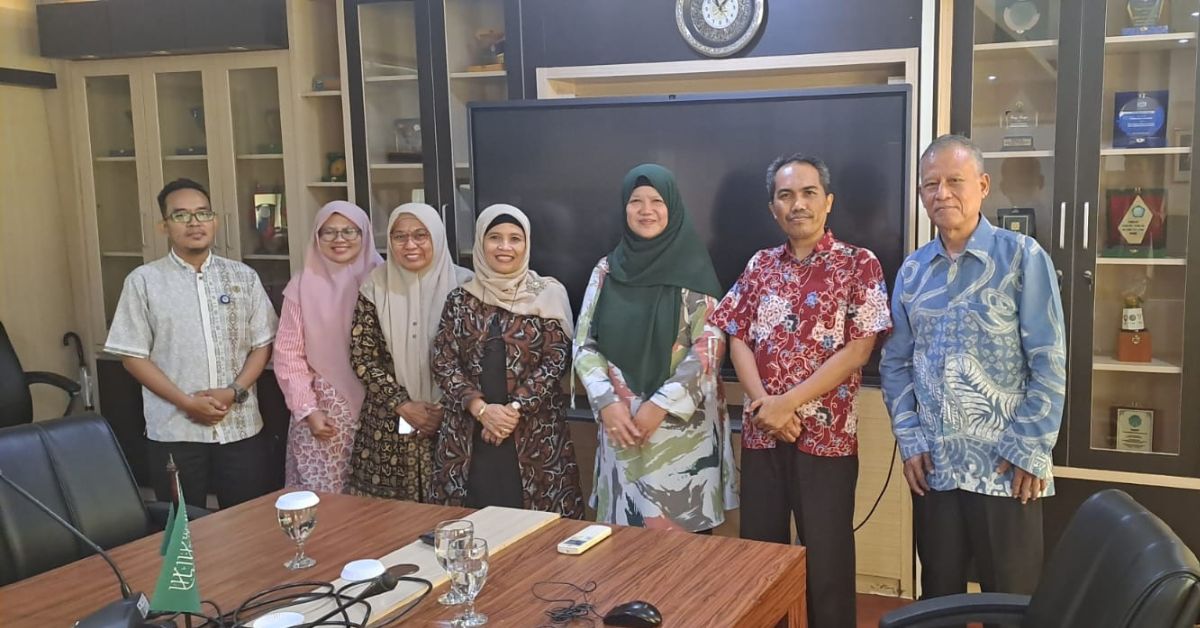The Research Ethics Committee (KEP) Provides Solutions to Improve Research Quality and Integrity in FST UIN Jakarta
Jakarta, July 17, 2025 — In an effort to strengthen research integrity and quality within the academic environment, Syarif Hidayatullah State Islamic University (UIN) Jakarta, through its Research Ethics Committee (KEP) team, held a Socialization Event on the Research Ethics Committee (KEP) on Thursday, July 17, 2025, at the Main Conference Room (RSU) of the Faculty of Science and Technology (FST). This activity marked a strategic agenda as part of the university-level KEP launch, formally established under Rector’s Decree No. 18 of 2025 dated January 14, 2025.
The event featured keynote speaker Prof. Dr. Irma Nurbaeti, Ph.D from the Faculty of Health Sciences (FIKES), UIN Jakarta. The event was also attended by key faculty leaders, including the Dean of FST, Vice Dean I, and Vice Dean II. The session welcomed lecturers and researchers from various study programs within FST, such as Prof. Lily Surayya EP, Fahri (Biology), Mahbubi, Ph.D (Agribusiness), Ardian (Biology), Tati Zera, M.Si (Physics), Dede Sukandar (Chemistry), and Prof. Hendrawati (Chemistry)—all demonstrating high enthusiasm for the importance of ethical regulation in research.
The establishment of the university-level KEP was driven by the increasing volume and complexity of research at UIN Jakarta, in line with growing demands for compliance with national and international ethical standards. Prior to this, KEPs existed on a faculty basis: starting from FKIK (2009), followed by FK (2016), FIKES (2018), and FPSI (2021). However, until 2024, there had been no formal ethics body at the university level. With the increasing number of research projects involving human, animal, and plant subjects, the need for ethical clearance has become critical to ensure research quality, subject protection, and eligibility for publication.
The roles and responsibilities of the UIN Jakarta KEP include evaluating the ethical feasibility of research proposals, granting ethical clearance, and protecting the rights and safety of research subjects. A structured ethics application process has been prepared, including differentiated service fees for internal and external researchers. Future plans include recruiting ethics reviewers, training support staff, preparing a dedicated KEP office space, and the official launch of the UIN Jakarta KEP on July 18, 2025.
During the Q&A session, Prof. Lily, also a member of the KEP for Science and Technology, emphasized the importance of building networks across faculties, recruiting reviewers, and providing specialized training—particularly for complex cases such as research involving waste or vulnerable subjects. In response, Prof. Irma stressed that ethical clearance should ideally be obtained before data collection begins, to ease the national and international publication process.
Prof. Hendrawati also shared her experience in cosmetic research, noting how the need for ethical documentation directly impacts research quality. She emphasized that ethical principles must apply to human, animal, and plant subjects. For research involving animals, for example, certified veterinarians and specialized ethical competency training are essential. Many participants offered suggestions to ensure continued dissemination of KEP procedures, so that researchers—especially those within UIN Jakarta—can more easily navigate the ethics process without compromising research quality and integrity.
At the conclusion of the event, the speakers expressed hope that KEP UIN Jakarta would become a leading force in upholding the university’s research standards, while also responding to the growing challenges of academic integrity in today’s increasingly complex research landscape (LS).



